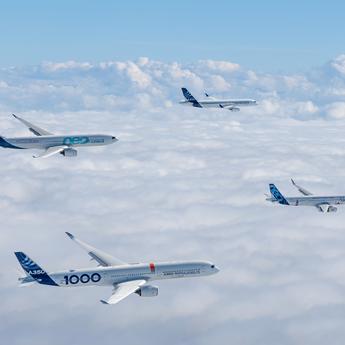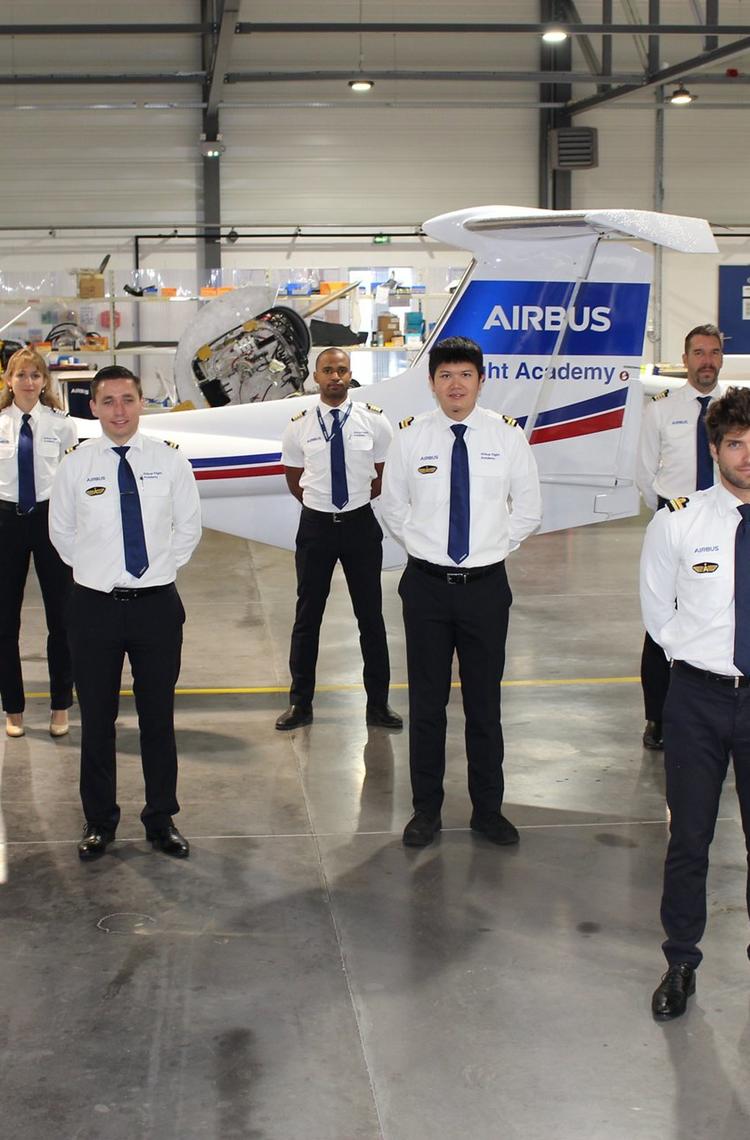Proudly wearing their newly-pinned wings, the cadets have become the first to graduate from Airbus’ Ab-Initio Pilot Cadet Training Programme – taking them one step closer to a career as a commercial airline pilot.
These cadets underwent their first phase of training at Airbus Flight Academy Europe in Angoulême, France, which included over 750 hours in ground school, plus 200 hours of flight instruction. They will now transfer to the Airbus Training Centre in Toulouse, for jet orientation and multi-crew cockpit cooperation courses, where they can follow upwith a Type Rating.
From no flying experience to a qualified airline pilot
Ab-Initio means “from the beginning,” and thanks to the full Airbus training programme - a cadet with no flying experience can be trained and qualified as a pilot . Airbus Flight Training has the advantage of providing a single and harmonious curriculum from beginning to end - applying Airbus flight training standards, training concepts and technologies, such as competency-based training and assessment.
This nurtures a new generation of Airbus ambassadors, who will carry the Airbus pilot competencies and airmanship values, from training to commercial operations.
- Captain Jean-Michel Bigarré, Airbus Head of Flight Training Worldwide
With the launch of the programme in 2018, the Ab-Initio Pilot Cadet Training programme currently has two partner schools: the Airbus Flight Academy Europe in Angoulême; and the “Escuela de Aviación México” in Mexico City. Today, there are over 70 cadets at the two locations.
By adding the ab-initio programme to Airbus Training activities, the company supports airline customers to prepare the future generation of pilots, ensuring cadets benefit from the company’s high levels of safety, reliability and expertise. The pilot cadet programme is open worldwide for high school graduates over 18 years old.
Looking to air traffic recovery in the coming years
Airbus has been offering training courses for airline customers since its creation 50 years ago, and has always taken a comprehensive and innovative approach with the introduction of the latest technologies and learning concepts. Continuing with this forward-looking strategy, the cadet training helps prepare the pilots of tomorrow – contributing to the air transport industry’s readiness for the air traffic recovery that is anticipated during 2023-2025 timeframe.
Having joined the Airbus Flight Academy Europe 18 months ago, I have successfully passed my Commercial Pilot Licence. The training fulfilled all my expectations and despite the current situation, I am convinced that my training at the Airbus Flight Academy will be a major asset for my future in the aviation industry.
- Johann, one of the graduating ab initio pilot cadets
With the COVID-19 pandemic’s onset, cadets followed their training through video conferencing classroom instruction, prior to progressively returning to school with all the necessary health and safety measures in place. This remote instruction was developed by the Airbus Flight Training operation, with approval provided by Europe’s EASA airworthiness authority one day after the COVID-19 lockdown was applied in France.
Read more Commercial Aircraft news
Continue Reading

Air Canada discloses order for eight Airbus A350-1000s
Press Release
Commercial Aircraft
Air Canada has disclosed a firm order for eight Airbus A350-1000 aircraft. Learn more about it.
Delta Air Lines grows Airbus fleet with order for 31 additional widebody aircraft
Press Release
Commercial Aircraft

Recycled and ready
Web Story
Innovation

Airbus reports 793 commercial aircraft deliveries in 2025
Press Release
Commercial Aircraft
Airbus completes acquisition of Spirit AeroSystems sites
Press Release
Commercial Aircraft
